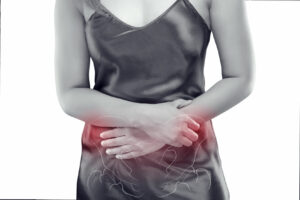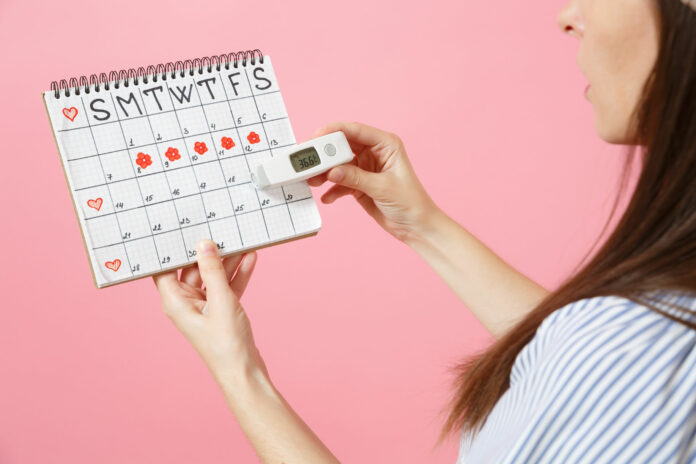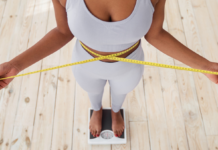Periods cramps are just one of the many uncomfortable, unappealing periods symptoms that come with having your period, and unfortunately, they tend to be all too easy to ignore or forget about until it’s too late. Luckily, there are some telltale signs you can watch out for that will help you identify and address your periods cramps before they get out of hand. Once you know what to look out for, these sneaky periods symptoms will be much easier to avoid and stop completely so you can continue living your life without unnecessary pain or discomfort.
1) Stomach Pain

Most people experience some degree of stomach pain during their periods time. Stomach pain for periods pain is caused by the uterus contracting and can be felt in the lower abdomen, back, and thighs. The intensity for periods pain varies from person to person, but it is usually manageable with over-the-counter pain medication. However, if the periods pain is severe or accompanied by other symptoms, such as fever or vomiting, it may be a sign of a more serious problem and you should see a doctor.
2) Headaches

Many women experience headaches during their periods cramps. The pain can range from mild to severe and is often accompanied by other symptoms like nausea, light sensitivity, and increased anxiety. If you’re experiencing headaches during your periods time, it’s important to stay hydrated and get plenty of rest. Over-the-counter for periods pain medication can also help relieve the discomfort.
3) Backache

Most people associate back pain with physical activity or an injury, but did you know that your periods cycle can also be the culprit? According to Dr. Mary Jane Minkin, a clinical professor of obstetrics, gynecology, and reproductive sciences at the Yale School of Medicine, approximately 50 to 70 percent of women experience low back pain during their period. The reason?
It’s all about spasms. During the periods cycle, as estrogen levels drop and progesterone surges up, the muscles contract excessively, causing aches in parts of the body (including the lower back) where they are in close proximity to tendons or ligaments.
4) Bloating & Feeling Heavy

Bloating and feeling heavy are two common periods symptoms of period cramps that can often be ignored. Bloating is caused by the build-up of fluid in your abdomen and can be alleviated by drinking plenty of water and avoiding salty foods. Feeling heavy is caused by the weight of your uterus pressing down on your pelvic floor muscles and can be relieved by doing pelvic floor exercises or using a heating pad.
5) Pelvic Pain

Most people experience some degree of pelvic pain during their lifetime. For periods pain, this is temporary and manageable. But for some, the periods pain can be chronic and debilitating. The causes of pelvic pain can vary, but often include periods blood clots, endometriosis, fibroids, and pelvic inflammatory disease. While there is no one-size-fits-all solution to managing pelvic pain, there are some treatments that can help ease the symptoms. Doctors may prescribe anti-inflammatory medications or contraceptives to treat for periods pain and periods blood clots. And because most cases of pelvic pain originate in the reproductive system, these options may be able to work more than just one aspect of the problem.
6) Dizziness

Dizziness is one of the most common periods symptoms of periods cramps. It is caused by the hormonal changes that take place in your body during menstruation. The good news is that dizziness is usually not a serious condition and can be treated with over-the-counter medication. However, if you experience severe dizziness or if it lasts for more than a few days, you should see a doctor rule out other possible causes.
7) Cramps & Lower Belly Pain

Most people experience periods cramps and lower belly pain during their periods time. For periods pain is caused by the uterus contracting to shed its lining. When the uterus contracts, it squeezes the blood vessels that supply it with oxygen and nutrients. This can cause the muscles in the uterus to periods cramps. The pain from periods cramps can range from mild to severe. Some people also experience back pain, nausea, vomiting, diarrhea, and headaches. There are a number of over-the-counter medications that can help relieve these periods symptoms. A few good examples include ibuprofen (Advil), naproxen sodium (Aleve), and mefenamic acid (Ponstel). These drugs work to block chemicals in your body that are causes for periods pain. As always, consult your doctor before taking any medications for your periods cramps and other periods symptoms.
In conclusion, there are many sneaky periods symptoms of periods cramps for periods pain that you might be ignoring. If you think you might be experiencing any of these periods symptoms, it’s important to consult with your doctor to get a proper diagnosis and treatment plan. Remember, you’re not alone in this and there are many resources available to help you cope with this difficult time.











